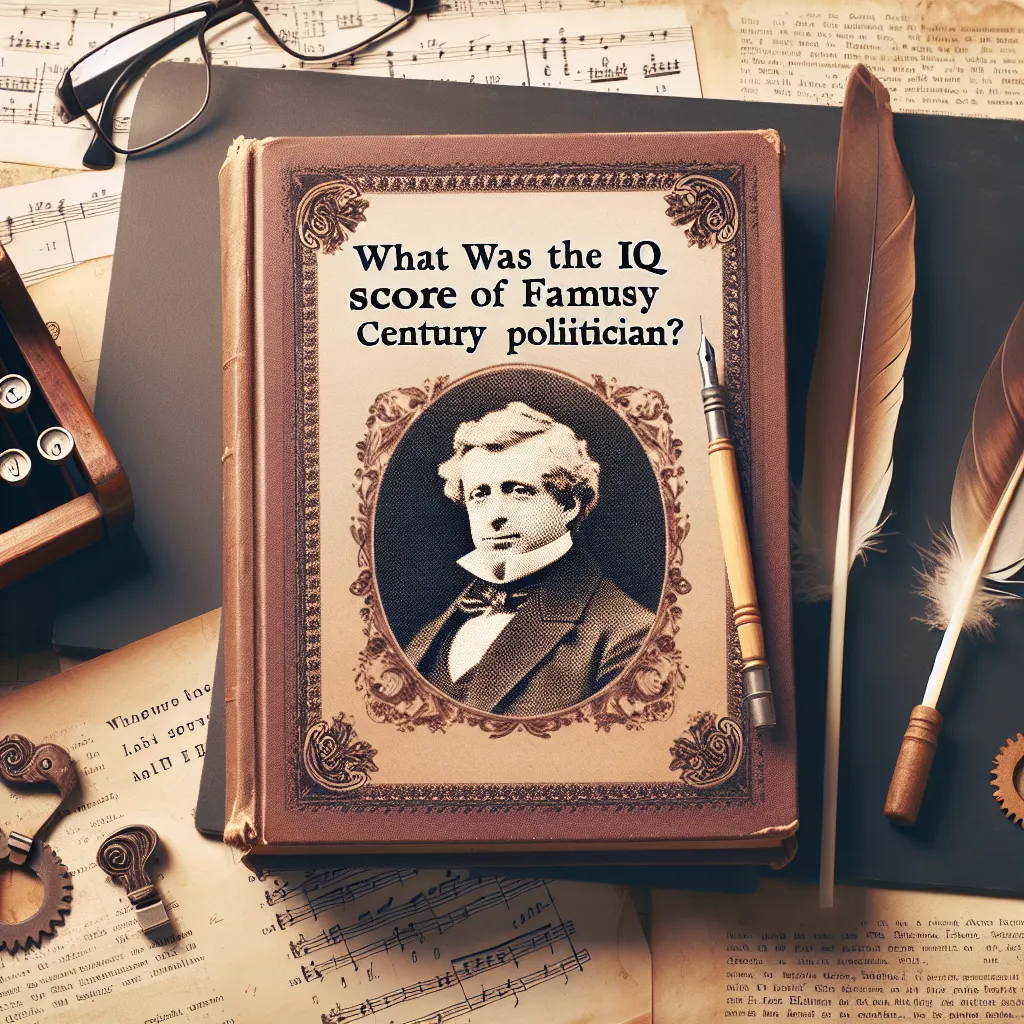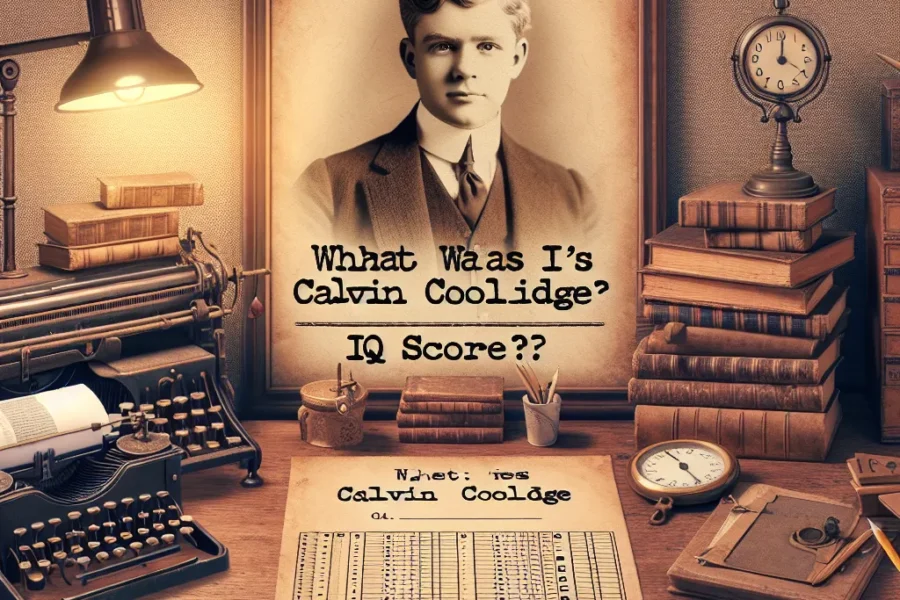Herbert Hoover, the 31st President of the United States, is often remembered for his leadership during the onset of the Great Depression. However, beyond his political career, many are curious about his intellectual capabilities, specifically his IQ score. While there is no definitive and historically accurate record of Herbert Hoover’s IQ, various sources and anecdotes provide insights into his intelligence and mental acuity.
If you are looking for legitimate IQ Tests which pass the entry bar for Mensa, see our IQ Tests.
Born on August 10, 1874, in West Branch, Iowa, Hoover was an academically gifted child who showed an early aptitude for learning. Hoover’s early education took place in a rural one-room schoolhouse, but his thirst for knowledge soon outgrew the resources available to him. By his mid-teens, he traveled to Oregon to stay with his uncle, Dr. John Minthorn, where he continued his education and became known for his mathematical and scientific prowess.
In 1891, at the age of 17, Hoover enrolled in Stanford University’s inaugural class. He faced initial challenges in gaining admission, but his determination paid off, and he was able to secure a place. Hoover graduated in 1895 with a degree in geology. His academic career at Stanford was marked by high achievement and a disciplined approach to his studies. Although his exact IQ score is not documented, his ability to excel in a rigorous academic environment suggests a high level of intellectual capability.
Hoover’s professional career as a mining engineer further underscores his intellectual acumen. He traveled the world, working in countries such as Australia, China, and various parts of Europe. His work required not only technical knowledge but also problem-solving skills, creativity, and the ability to manage complex projects and diverse teams. By his early 30s, Hoover had amassed a significant fortune, largely due to his success in the mining industry.
If you look closely at Hoover’s contributions outside his professional career, you see more evidence of his sharp intellect. His work during World War I as the head of the U.S. Food Administration demonstrated his organizational skills and strategic thinking abilities. Hoover was known for his humanitarian efforts, including organizing food relief for millions of Europeans affected by the war. This endeavor required meticulous planning, negotiation, and a deep understanding of global trade and logistics.
Another dimension of Herbert Hoover’s intelligence can be seen in his written works. He was a prolific writer and authored numerous books and articles on a wide range of subjects, including politics, economics, and history. His works display a well-rounded intellect and an ability to analyze complex socio-economic issues in depth. Hoover’s book “American Individualism,” published in 1922, encapsulates his philosophical outlook and reflects his thoughtful consideration of American society and its values.
In the context of measuring IQ, it’s essential to understand that Hoover’s era did not emphasize standardized testing in the way we do today. While modern IQ tests are structured to provide a quantifiable measure of intelligence, the intellectual pursuits and accomplishments during Hoover’s time were viewed through different lenses. Educational achievements, professional successes, problem-solving abilities, and contributions to society were often considered more indicative of a person’s intellectual prowess than a numerical score.
Furthermore, Hoover’s involvement in various administrations before his presidency also highlighted his incisive intellect. From 1921 to 1929, he served as the Secretary of Commerce under Presidents Harding and Coolidge. His tenure was marked by significant contributions to economic policy, including promoting efficiency and standardization in industry and commerce. His role in the development of radio broadcasting regulations and aviation advancements are examples of his forward-thinking and analytical skills.
When Hoover assumed the presidency in 1929, his administration was quickly besieged by the onset of the Great Depression. The challenges he faced were immense and multifaceted, requiring innovative solutions and strong leadership. While his policies and responses to the economic crisis have been subjects of debate, it is undeniable that addressing such unprecedented issues demanded a high degree of intellectual engagement and resilience.
Hoover’s post-presidency years continued to reflect his unwavering commitment to intellectual and humanitarian pursuits. He chaired commissions on government reorganization and engaged in public discourse on social and economic issues. His autobiography and other publications provide a window into the mind of a man who, though often criticized for his presidential decisions, was deeply thoughtful and driven by a desire to improve society.
Perhaps one of the most illuminating aspects of Hoover’s intelligence is his ability to adapt and learn across various fields. Despite his initial career as a mining engineer, he seamlessly transitioned into roles in public service, politics, and authorship. This adaptability is a hallmark of high intelligence, reflecting not only cognitive capacity but also the ability to apply one’s mind in versatile and impactful ways.
If one were to speculate on Herbert Hoover’s IQ using modern metrics, it would likely be above average, considering his extensive accomplishments, problem-solving abilities, and contributions to society. However, assigning a definitive IQ score to Hoover would be anachronistic, as it overlooks the multifaceted nature of his intellect and the broader contexts in which his intelligence was demonstrated.
In conclusion, while there is no precise figure available for Herbert Hoover’s IQ score, his life and career offer ample evidence of a highly intelligent individual. His achievements in academia, professional engineering, public service, and literature reflect a well-rounded intellect that excelled in a variety of domains. Thus, rather than focusing on a numerical IQ score, it is more meaningful to appreciate the breadth and depth of Hoover’s intellectual contributions and the lasting impact of his work on American society and beyond.
If you are looking for legitimate IQ Tests which pass the entry bar for Mensa, see our IQ Tests.



Leave a Comment